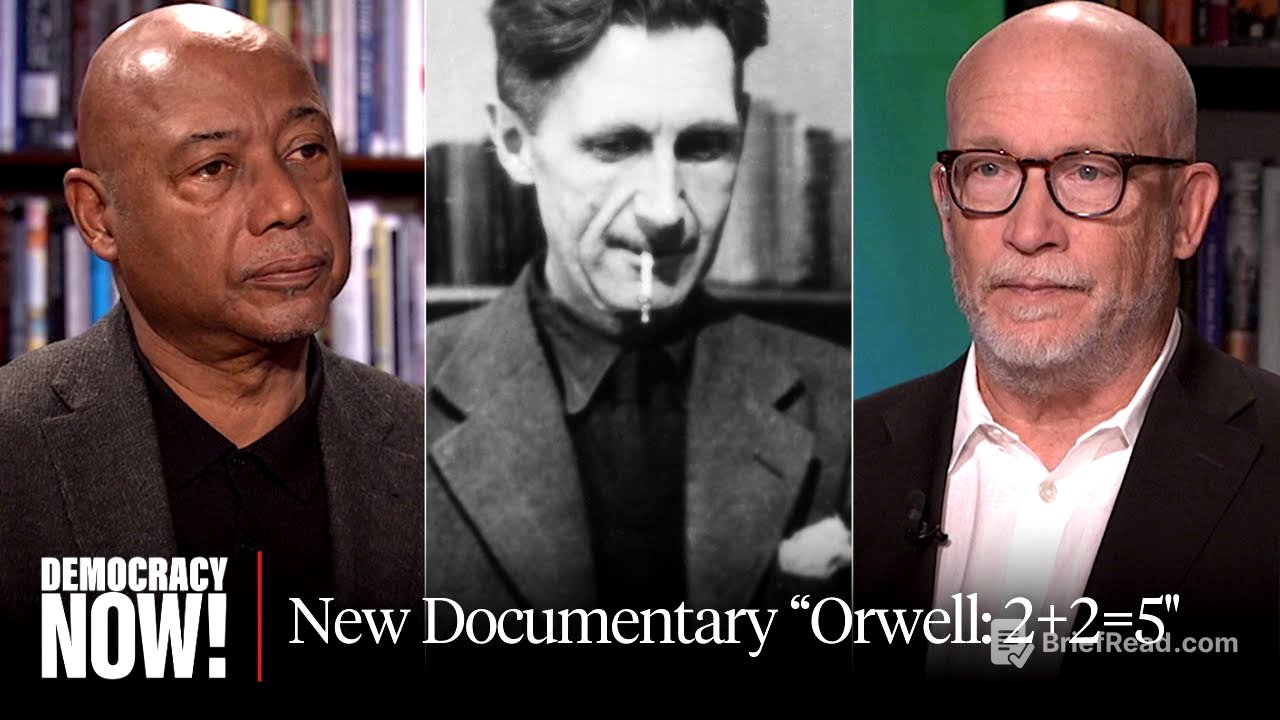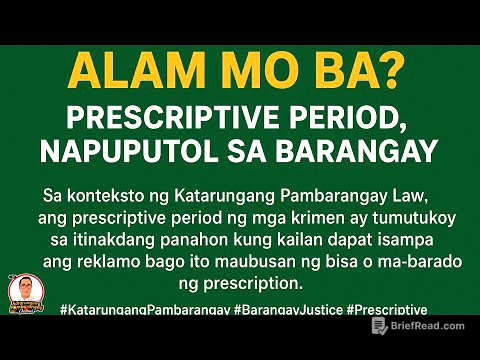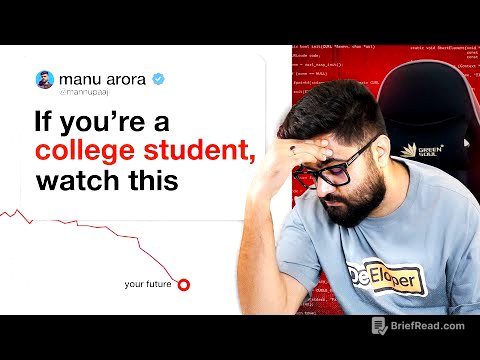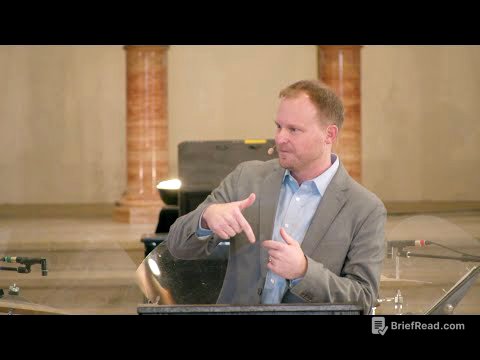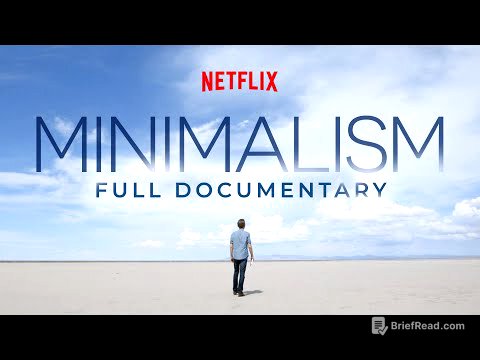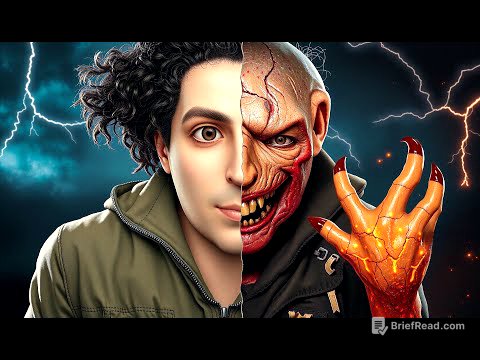TLDR;
This video features a discussion about the new film "Orwell 2 + 2 = 5," which explores the life and legacy of George Orwell and the relevance of his work, particularly "1984," in contemporary society. The film highlights Orwell's experiences with colonialism and the Spanish Civil War, which shaped his views on totalitarianism and abuse of power. It also examines how political language is used to distort truth and manipulate public opinion, a theme prevalent in Orwell's writings.
- The film emphasizes the importance of recognizing and resisting authoritarian tactics, such as the assault on common sense and the alteration of objective truth.
- It also addresses the role of social media in spreading misinformation and the need for critical thinking and media literacy.
- The speakers encourage viewers to take responsibility and form alliances to defend democracy and challenge injustice.
Trailer: Orwell 2 + 2 = 5 [0:46]
The trailer for "Orwell 2 + 2 = 5" introduces George Orwell's motivations for writing, which stemmed from a desire to expose lies and address injustice. It highlights key concepts from "1984," such as the fading of objective truth, the manipulation of language, and the dangers of totalitarianism. The trailer also features powerful imagery and quotes that underscore the relevance of Orwell's work in today's world, emphasizing themes of freedom, war, and ignorance.
Clip: Orwell's Warnings in the Modern Era [2:45]
This clip juxtaposes Orwell's writings with contemporary political rhetoric, featuring voices like Colin Powell and Vladimir Putin. It illustrates how totalitarian states use organized lying and continuous alteration of the past to maintain control. The clip also includes excerpts from film adaptations of "1984," highlighting the psychological manipulation and the demand for absolute obedience to authority, where even basic truths like "2 + 2 = 4" can be distorted.
Origins of the Film and Orwell's Relevance [6:02]
Director Raul Peek and producer Alex Gibney discuss the origins of the film "Orwell 2 + 2 = 5" and its unexpected relevance in today's world. Peek explains that he wanted to explore how Orwell's insights into totalitarian regimes and abuse of power are applicable to various countries, including the United States. He emphasizes Orwell's ability to recognize the signs of authoritarianism, such as attacks on the press, justice system, and academia, which are recurring patterns globally.
Finding the Story in Orwell's Life [8:06]
Raul Peek explains his approach to making the film, focusing on Orwell's final years as he struggled to complete "1984." This period of his life, marked by illness and a race against time, provided a compelling narrative thread to explore his broader body of work. Peek emphasizes that he aims to create films that resonate across time, offering insights into both contemporary issues and enduring human struggles.
Orwell's Personal Experiences and Ideological Formation [9:45]
The discussion shifts to Orwell's personal experiences, particularly his time in Burma as a soldier in the British colony. This experience exposed him to the realities of colonialism and his role as an oppressor, which profoundly shaped his thinking. His involvement in the Spanish Civil War further solidified his political stance, leading him to integrate politics and art in his writing. The speakers highlight that Orwell's work was rooted in his lived experiences rather than abstract dystopian concepts.
Colonialism, Class, and Orwell's Perspective [11:57]
The conversation explores Orwell's time as a policeman in British-colonized Burma, where he recognized himself as part of a "despotic" system. This realization led him to believe that the oppressed are always right and the oppressors wrong, a theory born from his own experience as an oppressor. The discussion also touches on Orwell's understanding of class, particularly his self-identification as "lower upper middle class," and how politicians often use the term "middle class" to erase class distinctions.
Clip: Orwell on Imperialism and Class [14:37]
This clip features Orwell's reflections on his time in Burma and how it shaped his understanding of imperialism and class. He notes that in colonial settings, race often overshadows class distinctions, with white men considered superior to the "inferior" natives. Orwell acknowledges the inherent injustice of imperialism and the difficulty of being part of such a system without recognizing its tyranny.
The Assault on Common Sense and Objective Truth [16:47]
Alex Gibney discusses Orwell's quote about leaders claiming that something that happened didn't happen or that two and two is five, emphasizing that this assault on common sense is more frightening than bombs. He argues that authoritarian leaders invent facts and expect them to be revered as true, undermining people's ability to trust their own instincts. Gibney stresses the importance of resisting this manipulation and upholding objective truth.
Totalitarian Tactics and the Erosion of Truth [18:16]
The speakers discuss how totalitarianism can corrupt individuals even in non-totalitarian countries and highlight the universality of authoritarian tactics. Raul Peek references Kellyanne Conway's "alternative facts" as an example of "newspeak," where language is used to distort reality. He also points out the hypocrisy of leaders who promote peace while engaging in violence, noting that this double language has long been a feature of imperialism and colonialism.
Newspeak and Social Media [21:19]
Raul Peek discusses the proliferation of "newspeak" through social media, where misinformation spreads rapidly and unchecked. He mentions examples such as "special military operation" equating to the invasion of Ukraine and "vocational training center" referring to concentration camps. Peek emphasizes that the inability to trust language signifies a breakdown of democracy.
Hope and Responsibility [22:38]
Raul Peek shares his perspective on hope, focusing on the importance of taking action once one recognizes that something is not functioning properly. He emphasizes the responsibility of individuals, journalists, politicians, and civil society to respond to injustice and form alliances to bring about change, drawing inspiration from the civil rights movement.
